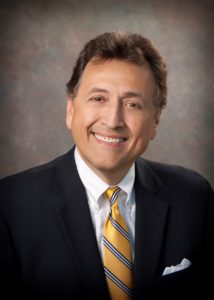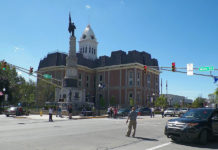Hazelden Betty Ford Foundation representatives recently revealed plans to open an outpatient addiction treatment center in Bellevue, Washington in January 2019. The center will be the foundation’s 15th clinical location in the U.S. and benefit individuals in the Seattle metropolitan area.
According to Bob Poznanovich, vice president of business development for the Hazelden Betty Ford Foundation, the decision to open a location in the area resulted from discussions and partnerships.
According to the Washington Department of Health, 693 of the state’s 1,128 fatal drug overdoses in 2017 involved opioids. Although the state’s drug overdose hospitalization rate remains relatively high, it appears to be declining. King County, where Bellevue is located, experienced 218 opioid-related overdose deaths.
The facility will be located in the Overlake Medical Pavilion, adjacent to the Overlake Medical Center hospital. Staff will focus on providing individualized treatment options for patients, including counseling and peer recovery support.
“It’s critical that addiction treatment services are comprehensive and individualized to patients’ specific needs and situation,” Poznanovich said. “Addiction is a chronic condition that often has biological, psychological, social and spiritual aspects to it — all of which manifest in similar but unique ways for different individuals. People who initiate recovery through treatment also have varying levels of what we call recovery capital — things like education, jobs, housing and family support that are important to sustaining recovery.”

In order to best serve patients diagnosed opioid use disorders (OUD), the foundation will be implementing its ‘Comprehensive Opioid Response with the Twelve Steps’ (COR-12) framework. COR-12 combines evidence-based therapeutic methods and peer recovery support with medication-assisted treatment — usually prescribed buprenorphine or extended-release naltrexone — to holistically treat patients.
“Medications are not only helping people stay alive, but reclaim their lives and establish healthy futures in recovery.”
Poznanovich stated that COR-12 benefits patients with OUDs by addressing many factors that can affect long-term addiction recovery, such as comorbid mental health disorders, the risk to relapse to drug use and overdose, and other conditions like hypersensitivity to pain.
“We do everything we can to keep patients engaged in treatment and support services longer than may be typical with other substance use disorders — and that’s because the withdrawal symptoms for opioids can continue for so long.”
The center will also provide ‘screening, brief intervention and referral to treatment’ services for teenagers.
Poznanovich added that the new center will help alleviate the burden of Seattle-based patients referred to Hazelden Betty Ford’s inpatient locations in northern Oregon and work to smoothly transition patients them to Bellevue center’s outpatient services.
Representatives of the organization are currently introducing regional healthcare providers to its Hazelden Betty Ford Patient Care Network, which was established last fall.
Poznanovich described the network as a “collection of like-minded, quality-oriented, ethical providers committed to sharing and collaborating around evidence-based clinical practices, education and research.”
The foundation plans to have a ribbon cutting ceremony a month after the center opens.
“Our long-term goal is to be widely recognized as a valued collaborator and an integral part of Seattle’s health care system and wider social fabric.”

















